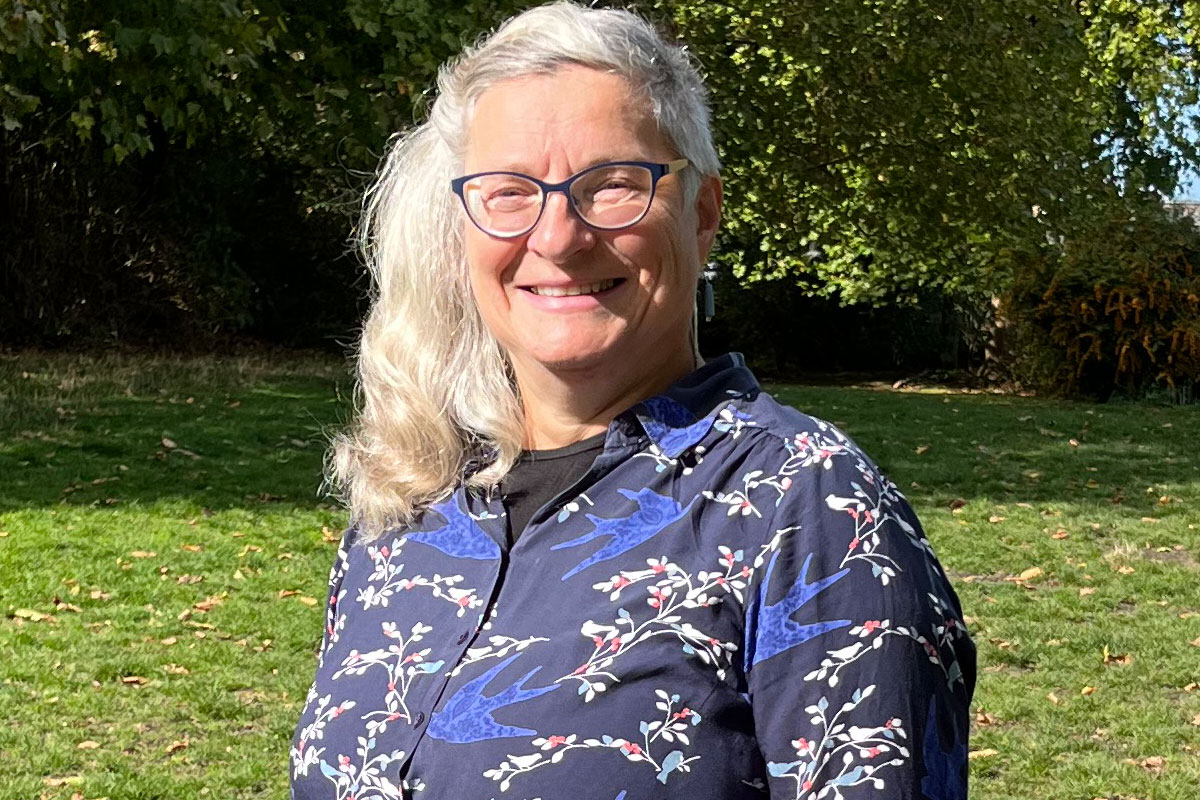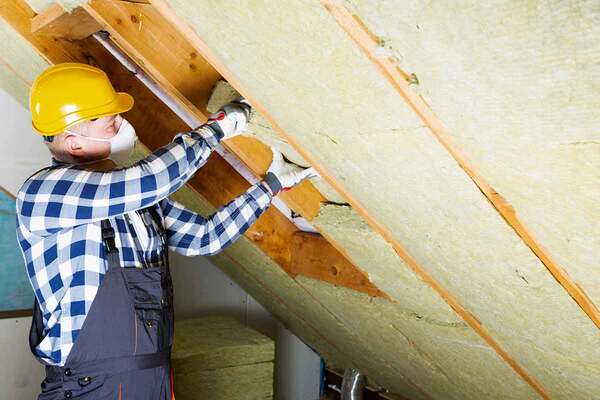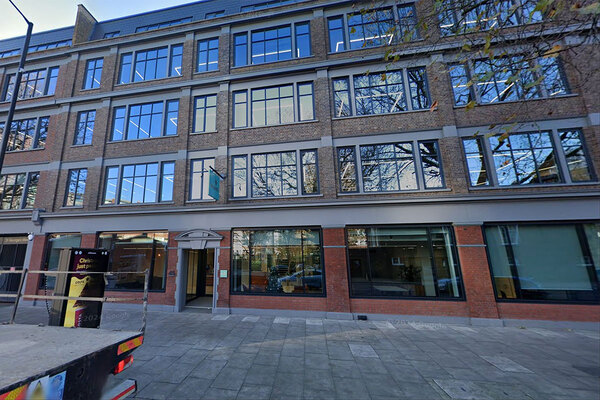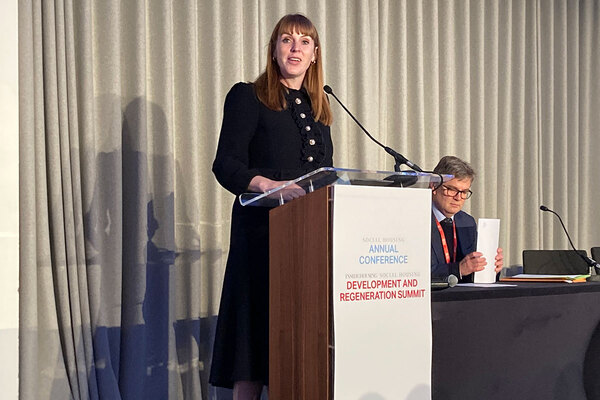You are viewing 1 of your 1 free articles
15 minutes with… Dinah Roake, chair of the London Housing Panel
Dinah Roake is the new independent chair of the London Housing Panel, which brings together community and voluntary housing organisations to influence the mayor’s housing policy. She talks to Inside Housing about what the panel hopes to achieve and her own background in housing
Tell us a bit about your background, and your path to becoming chair.
I am trained as an architect and started working on housing schemes. My son was born during the 1980s, then came the early ’90s recession, when I got a job with a housing association. But my interest is really in all of the mechanisms of how housing comes forward. It was assisted by the fact that my mum worked for the LCC [London County Council] on housing in the 1940s and ’50s. My interest is in how do we make places work for people? Homes are such a crucial part of that.
I’ve never worked directly in a campaigning organisation, because most of what I’ve done has been about getting homes delivered, built, lived in and maintained. So that experience of the ‘how’ maybe gives me the background to act in that independent way to support all of those voices to be heard.
What are the next steps in driving forward on the panel’s priorities, such as “massively increasing social housing supply”?
We’ve set up working groups and we’ve got different members of the panel to identify the areas that they want to really put some effort into. Those working groups are just starting. There is one on temporary accommodation and one on housing supply. But it’s too early to say what they’re going to come up with. It’s important [we have] the commitment from the Greater London Authority (GLA) to be part of those working groups.
What’s the relationship like between the panel and the GLA?
It’s a positive relationship, I think. And there’s a willingness on their part to work with the panel, even if the panel might be saying some challenging – hopefully constructively challenging – things.
And there’s also recognition that the panel members bring a wealth of knowledge, that the GLA at a policy level doesn’t have.
Disrepair of social housing has been one of the biggest issues facing the sector in the past few years. Is this something the panel is looking at?
It’s not up there in the priorities [set by the panel]. But obviously, we need to be massively increasing social housing supply – if more and more of those homes are in poor condition, you’ve not achieved the objective. It’s part of the conversation, but it’s not something that we’re currently working on.
The issue of quality homes is a critical one, because we’re saying we want people to have secure, affordable homes. They’ve also got to be secure from a health and safety point of view.
You want everyone always to be saying: it’s about homes, but high quality, well located, well maintained. Some of us take that as totally implicit. But maybe we need to emphasise it.
I think that’s why the panel was so keen to introduce the equality, diversity and inclusion action plans in the new Affordable Homes Programme.
It should go to the core of the explanation about why the homes will be provided, where they’re being provided and how people are being included. And I mean from a community, housing point of view and how they’re included in the design of those homes in the first place. But it’s also about how people have agency in how their homes are, then how they are managed and maintained.
The housing market is in a difficult place right now. Are you worried about the impact this could have on affordable housing in London?
Rapidly rising interest rates will put some mortgage holders at risk of losing their home. This could be exacerbated for shared ownership tenancies if the part of their tenancy on which they pay an annual rent is inflated by the Retail Price Index at 10% or 12% come September.
If interest rates stay high, the cost of borrowing for all developers – including providers – will rise. And that, combined with inflation in the price of materials and labour, could see developers holding off from building and just sitting on land. It will also increase the cost of repairs. This is an opportunity for councils to act counter-cyclically, building zero-carbon homes for rent, using Public Works Loan Board loans and borrowing over longer horizons. The London Housing Panel has called for a massive increase in good-quality social housing supply – this could be through a net increase in transposition from other tenures.
The loss of private rental homes in London since COVID-19 is contributing to a reduction in available homes for refugees; for families who are homeless and require temporary accommodation while waiting for permanent housing; and for others who are not eligible for social rented housing based on their priority banding. Increases in buy-to-let mortgage interest rates could mean even more rental homes are sold off.
Low and middle-income families are being hit from all sides. There are fewer homes they can afford to rent, either through social housing supply or private rents; Local Housing Allowance rates frozen at March 2020 levels are affecting benefits and what rents they can afford; and the cost of living crisis is eating away at any savings.
The panel’s working groups on social housing supply and action on temporary accommodation will continue to work on these areas.
‘15 minutes with…’ series
In our ‘15 minutes with…’ series, we have a quick chat with the biggest names in the sector about the most important issues.
Previously, we have featured:
Barbara Brownlee, chief executive of Soho Housing
Eddie Hughes, former minister for rough sleeping and housing
Geeta Nanda, chief executive of Metropolitan Thames Valley Housing
David Bogle, chair of Homes for Cathy
Laurence Carr, money coach at Yorkshire Housing
Dinah Roake, chair of the London Housing Panel
Sheron Carter, chief executive at Hexagon
Helen Spencer, executive director of growth at Great Places
Julie Wittich, executive director of assets and sustainability at Accent
Ian Mulheirn, executive director of policy at the Tony Blair Institute for Global Change
Kevin Ruth, chief executive of Together Housing
Piers Williamson, chief executive of The Housing Finance Corporation
Seyi Obakin, chief executive at Centrepoint
Fayann Simpson, senior independent director at L&Q
Mark Perry, chief executive at Vivid
Rose Bean, executive director of assets and sustainability at Abri
Ruth Cooke, chief executive at GreenSquareAccord
Ben Denton, managing director at L&G Affordable Homes
Simon Dudley, chair at Ebbsfleet Development Corporation
Emma Palmer, chief executive at Eastlight Community Homes
Tracy Harrison, chief executive at Northern Housing Consortium












